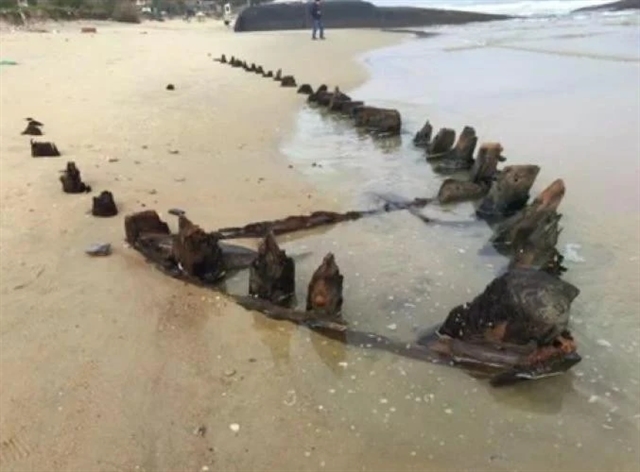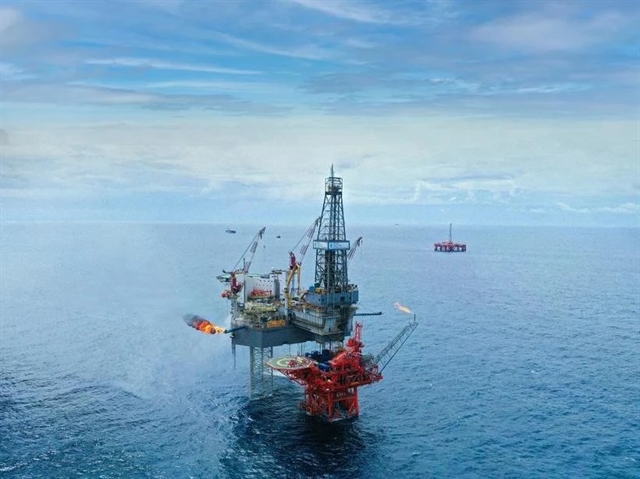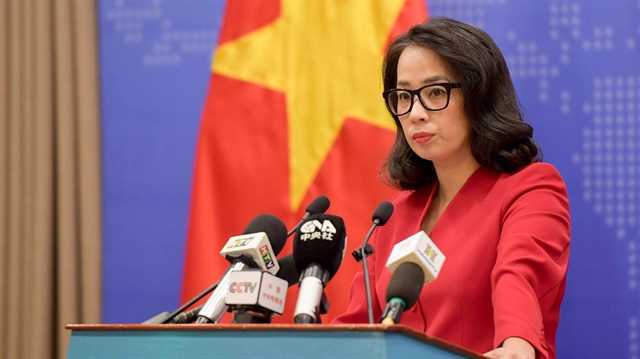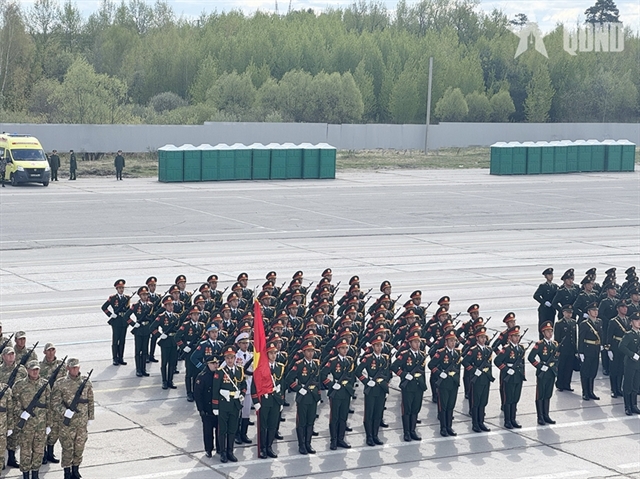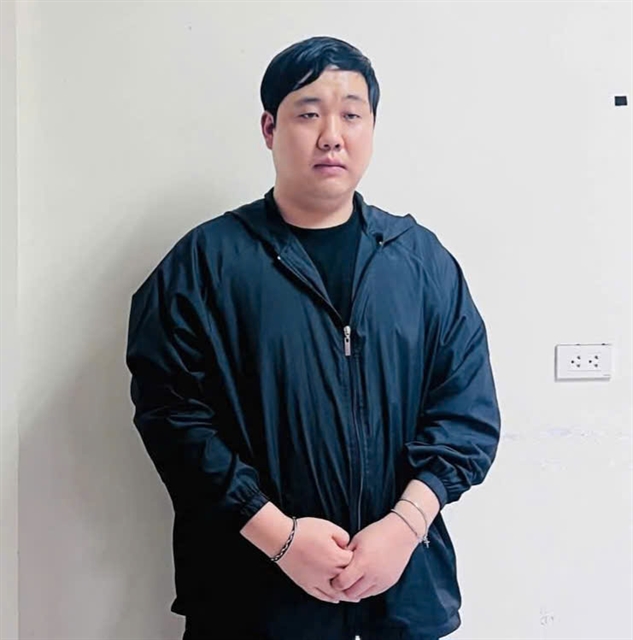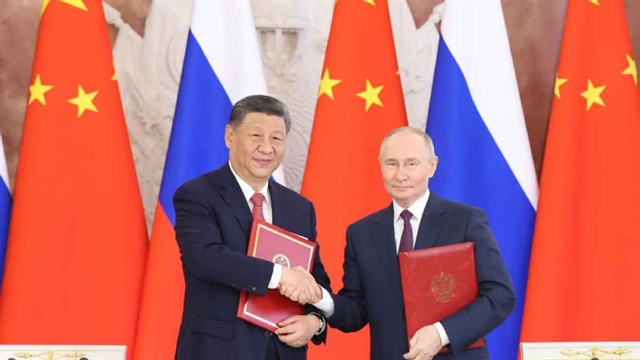 World
World
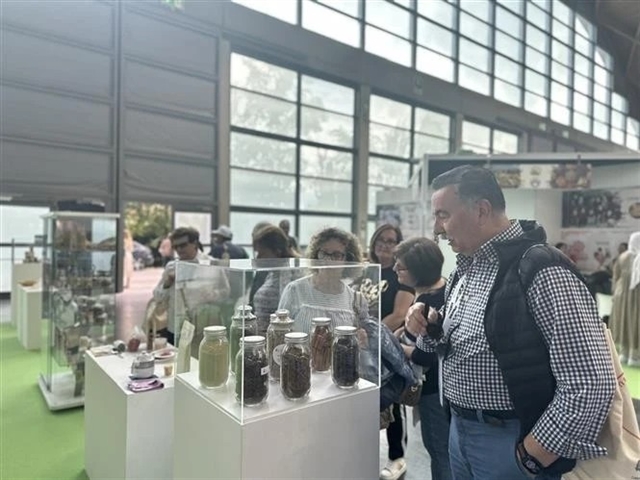
.jpg)
|
| Ukrainian refugees arrive by Ukrainian passenger train at the Warszawa Wschodnia (Warsaw East) train station in Warsaw, Poland, 27 February 2022. Poland is expecting thousands of Ukrainian refugees to cross the country's border in the days to come, as about 200,000 had already entered Poland by the fourth day of the Russia-Ukraine conflict, the interior minister has said. AFP/VNA Photo |
MINSK — Talks between the Russian and Ukrainian delegations will begin in the morning on Monday, a source told TASS.
"It is not a postponement. The meeting will begin in the morning. The reason is the Ukrainian delegation’s logistics," the source said.
Russian presidential aide Vladimir Medinsky, who leads the Russian delegation to the talks, said earlier that an agreement had been reached with the Ukrainian side on Sunday to hold talks in Belarus’ Gomel region. The Russian delegation has already left Minsk and is heading for the talks’ venue, which, according to a TASS source, will not be disclosed.
The European Union on Sunday moved to coordinate a welcome for hundreds of thousands of Ukrainians fleeing the Russian military operations, talking notably about offering them temporary protection status.
Around 400,000 Ukrainians have crossed into the EU since the start of the offensive on Thursday, according to an AFP tally. Half of them entered Poland, its government said.
A meeting of EU interior ministers raised the possibility of giving Ukrainians status under an as yet unused 2001 Temporary Protection Directive that would allow them to live and work in the European Union for up to three years.
"A very big majority" of ministers were in favour of rapidly activating that option, said French Interior Minister Gerald Darmanin, whose country holds the rotating EU presidency.
Under cooperation agreements, Ukrainians with passports bearing biometric data are allowed to enter the EU without a visa and stay for up to three months.
But EU Home Affairs Commissioner Ylva Johansson said the bloc needed to be ready to host them beyond that duration -- and that it needed to prepare for potentially "millions" of arrivals from Ukraine.
"It would be the right time to use the Temporary Protection Directive," she said.
The directive was originally drawn up for refugees from the conflicts that wracked the former Yugoslavia, with provisions for handling a massive inflow of people and measures to distribute them across the EU's 27 nations.
Belgium was on the forefront of the member states calling for the protection directive to be applied.
"At this historical moment we need to take the right decision. Taking the right decision means... the Temporary Protection Directive being put in place," Belgian Immigration Minister Sammy Mahdi said.
For the tool to be used, though, a qualified majority of EU states -- 15 of the 27 countries representing a total of at least 65 percent of the bloc's population -- need to back it.
Johansson said she was preparing a proposal to activate it, which should be presented to interior ministers at another meeting scheduled for Thursday.
Leaders of the G7 on Sunday threatened fresh sanctions against Russia.
Canada, France, Germany, Italy, Japan, Britain and the United States warned in a joint statement that they would "take further steps" to add to the sanctions already announced if Russia did not cease its operation.
Russian military gains in Ukraine achieved through its ongoing campaign leading to "any change of status" such as the annexation of territory "will not be recognised", G7 foreign ministers said in a joint statement.
In a later statement, Blinken said the group has "never been more fully aligned across the globe to defend and preserve the freedom and sovereignty of Ukraine and all states."
Ukraine has reported 198 civilian deaths, including three children.
The UN has put the civilian toll at 64 while the EU said more than seven million people could be displaced by the conflict.
"We are witnessing what could become the largest humanitarian crisis on our European continent in many, many years," the EU commissioner for crisis management Janez Lenarcic said.
Zelensky, who has defied Russia's onslaught and rallied his country with determined appearances on social media, admitted: "The past night in Ukraine was brutal.
"They fight against everyone. They fight against all living things -- against kindergartens, against residential buildings and even against ambulances." TASS/AFP


